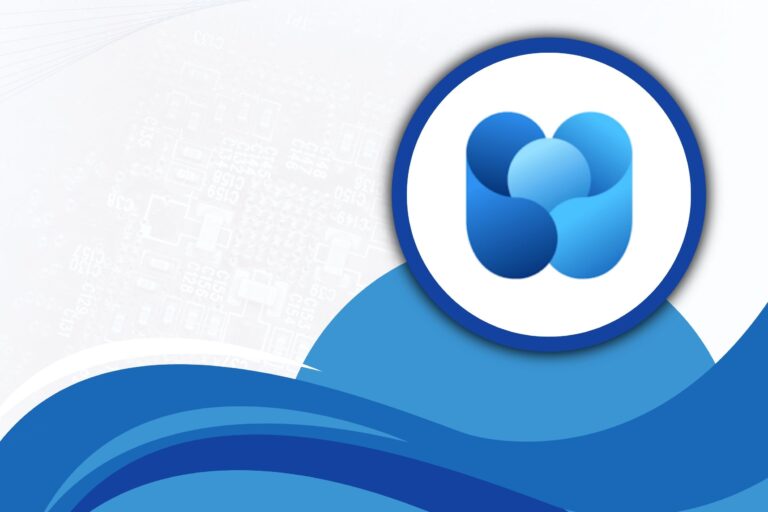Beyond the Classroom: Essential Skills for Career Success

A degree gets you in the door—but the right skills can help you get the job.
Today’s employers are looking for more than academic knowledge. They seek candidates who demonstrate adaptability, initiative, and the ability to deliver results.
At HAMK, you’re already building the foundation for your future. But thriving in the modern job market requires more than good grades. Employers across industries tend to value a blend of technical expertise and essential soft skills—like communication, problem-solving, and self-leadership.
This guide explores the most in-demand hard and soft skills—and how you can start developing them now, while still studying. So, what exactly are these skills? Why are they so critical? And how can you start building them today to boost your career potential? Let’s dive in.
What are hard skills?
Hard skills are measurable, teachable abilities usually acquired through formal education or specific training, such as:
- Mathematics, physics, or chemistry
- Language proficiency
- Computer and technical skills
- Data analysis
- Presentation and writing skills
These are often listed in job postings and can be verified through tests, certifications, or portfolios. That’s why they’re crucial when crafting your CV or choosing your study path.
💡 Pro tip: Still exploring your field or looking to sharpen your skills? Research the qualifications currently in high demand. Aligning your studies with job market needs boosts both your employability and future-proofing.
Today’s Top Hard Skills (Across Most Fields)
Regardless of the field, technology-related skills are in high demand. Basic proficiency in tools like Microsoft 365 and a foundational understanding of AI(artificial intelligence) are quickly becoming essential.
Top Hard Skills:
- AI and Machine Learning
- Cloud Computing
- Programming Languages (like Python and JavaScript)
- Data Analysis
- Cybersecurity
- Project Management
💡 Pro tip: Start learning for free with FiTech – the Finnish Institute of Technology (fitech.io), offering courses designed to meet industry demands.
See also: Forbes – LinkedIn’s Most In-Demand Skills for 2025
What are soft skills?
While hard skills may get your foot in the door, soft skills help you grow, lead, and thrive. These are interpersonal and cognitive abilities that define how you work and relate to others. Unlike hard skills, soft skills are harder to measure – but they’re often what make a lasting impression on employers.
Most In-Demand Soft Skills Today
Soft skills are transferable across industries and often play a key role in leadership, collaboration, and adaptability. Here are some of the most sought-after:
1. Communication & Interpersonal Skills: Active listening, customer service, networking, and working in multicultural or multidisciplinary teams.
2. Self-Management & Problem Solving: Time and stress management, flexibility, critical thinking, and the ability to take initiative.
3. Technical Adaptability: Familiarity with digital tools, willingness to learn new technologies, and entrepreneurial thinking.
4. Field-Specific Expertise & Initiative
Practical experience, internships, and the ability to grow and adapt within your area of specialization.
Developing soft skills is often about practice, feedback, and reflection. Seek out group work opportunities, internships, or volunteer positions where you can refine these skills in real-world settings.
💡 Pro tip: Join group projects, internships, or volunteer opportunities to practice and reflect on these skills in real-world situations.
Top skills by industry
Healthcare
While the human touch remains essential, technology is increasingly shaping how healthcare is delivered.
Key Skills:
- Medical Chart Reading and Interpretation
- Digital Health Competence
- Clinical Nursing Skills
- Home Care Competence
- Multi-Disciplinary Collaboration
- Language Proficiency
- Technical Skills
- Medication Administration Certification (LOP/LOVe Certification)
- Regulatory Compliance (Valvira Registration)
- Pharmaceutical Knowledge
- Health Informatics
Entering this field, especially in Finland requires years of practice, necessary educational qualifications and necessary licenses and permits.
💡Read more at sairaanhoitajat.fi and valvira.fi.
Engineering and Manufacturing.
Fields like mechanical, civil, electrical engineering, and industrial design require both technical and analytical expertise.
Key Skills:
- Manufacturing Process Knowledge
- Mechanical and Production Engineering
- Quality Management Systems
- Computer-Aided Design (CAD)
- Product Lifecycle Management (PLM)
- Enterprise Resource Planning (ERP) Systems
- Automation and Robotics
- Data Analysis and Statistical Process Control (SPC)
- Project Management
- Knowledge of Green Technologies and Sustainability
- Communication and Language Skills
Agriculture and Forestry
These sectors now depend on innovation and sustainability to manage resources efficiently.
Key Skills:
- Sustainable Resource Management
- Precision Agriculture and Forestry Techniques
- Geographic Information Systems (GIS)
- Machinery Operation and Maintenance
- Soil and Plant Science
- Pest and Disease Management
- Data Analysis and Interpretation
- Regulatory Compliance and Environmental Policies
- Project Management
- Communication and Language Skills
Technology & IT
With rapid advancements, staying current is crucial for a career in tech.
Key Skills:
- Cybersecurity
- AI Skills
- Data Analysis Skills
- IT Skills
- Programming Skills: Python and JavaScript
- Cloud Computing Skills
- Network and System Administrator Skills
- DevOps Skills
- Blockchain Skills
- Project Management Skills
- Machine Learning Skills
💡Read more and Explore free learning opportunities at fitech.io
Business and Finance
This field connects all industries to consumers and decision-makers. This includes many areas such as business administration, accounting and finance and sales and marketing.
Key Skills:
- Financial Analysis and Reporting
- Data Analysis and Business Intelligence
- Accounting Proficiency
- Risk Management
- Regulatory Compliance
- Project Management
- Proficiency in Financial Software
- Sales and Marketing Skills
- Customer Relationship Management
- Strategic Planning
💡Read more, free Learning Resources:
- Power BI: Microsoft Learn, Spreadsheeto, Simplilearn
- SQL: SQLRevisited, LearnSQL.com, Rivery
- Finance: Coursera, upGrad, Class Central
Creative Industries and Design
The design and creative industries are essential as most of the products and tools used in other industries are designed in this field. Ensuring the products fit the purpose, gives a seamless experience for the user while having an edge in the market is the sole purpose of designers. These days this industry demands skills such as:
- Proficiency in Design Software
- User Experience (UX) and User Interface (UI) Design
- 3D Modeling and Rendering
- Web Design and Development
- Motion Graphics and Animation
- Digital Illustration
- Branding and Visual Identity
- Color Theory and Color Psychology
- Typography
- Photography and Photo Editing
- Knowledge of Print Production
Developing these skills requires academic training and training from expertise.
Conclusion
Developing both hard and soft skills while still in school is one of the smartest investments you can make in your future. Whether you’re entering healthcare, engineering, IT, or the creative industries, employers are seeking not only technical know-how but also adaptability, communication, and initiative. Start small, take a course, volunteer, ask for feedback, or tackle a side project. Every step you take now will bring you closer to a successful career.
💡Read more The Future of Jobs Report 2025 | World Economic Forum
HAMK Career Services
Turning Skills into Opportunities—with a Little Help Along the Way!
HAMK Career Services is here to support your career development through diverse cooperation and actions. We aim to bridge the gap between you and work life by facilitating conversations and building connections with employers, alumni, and other key stakeholders. We also recognize that community building and international competence are essential parts of your career journey—and we’re here to help you grow in both.



